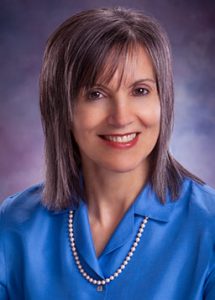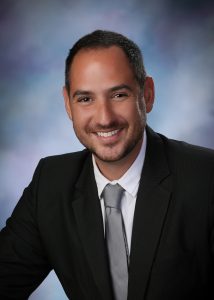NATUROPATHIC MEDICINE: COMPREHENSIVE, INTEGRATED HEALTH CARE


By: Dr. Margaret Beeson and Dr. Guy Citrin
Publishes in the Gazette 10/10/2017
The 5th Annual U.S. Naturopathic Medicine Week is from October 8-14, 2017.
Naturopathic medicine combines safe and effective traditional therapies with the most current advances in modern medicine. Naturopathic medicine is appropriate for the management of a broad range of health conditions affecting all people of all ages.
A licensed naturopathic physician (ND) attends a four-year, graduate-level naturopathic medical school and is educated in all of the same basic sciences as an MD, but also studies holistic and nontoxic approaches to therapy with a strong emphasis on disease prevention and optimizing wellness. In addition to a standard medical curriculum, the naturopathic physician also studies clinical nutrition, homeopathic medicine, botanical medicine, psychology, and counseling. A naturopathic physician takes rigorous professional board exams so that he or she may be licensed by a state or jurisdiction as a primary care general practice physician.
There are 7 fully accredited medical schools for naturopathic medicine in North America. To practice in a licensed state, such as Montana, and to be a member of the American Association of Naturopathic Medicine, an ND must have graduated from an accredited medical school and passed the national board exams. Currently, 20 states, the District of Columbia, and the United States territories of Puerto Rico and the United States Virgin Islands have licensing or registration laws for Naturopathic Doctors. The only major opposition to licensing efforts has been from practitioners that have received their education and degrees from non-accredited, usually mail order, programs. Our national association has been vigilant in support of licensure that requires a 4-year nationally accredited postgraduate medical education and professional board exams.
Licensed naturopathic physicians follow a set of principles that help us bring our shared vision to our patients. These principles are:
The Healing Power of Nature (Vis Medicatrix Naturae)
The healing power of nature is the inherent self-organizing and healing process of living systems, which establishes, maintains and restores health. Naturopathic medicine recognizes this healing process to be ordered and intelligent. It is the naturopathic physician’s role to support, facilitate and augment this process by identifying and removing obstacles to health and recovery, and by supporting the creation of a healthy internal and external environment.
Identify and Treat the Causes (Tolle Causam)
Illness does not occur without cause. Causes may originate in many areas. Underlying causes of illness and disease must be identified and removed before complete recovery can occur. Symptoms can be expressions of the body’s attempt to defend itself, to adapt and recover, to heal itself, or may be results of the causes of disease. The naturopathic physician seeks to treat the causes of disease, rather than to merely eliminate or suppress symptoms.
First Do No Harm (Primum Non Nocere)
Naturopathic physicians follow three precepts to avoid harming the patient:
- Naturopathic physicians utilize methods and medicinal substances, which minimize the risk of harmful effects, and apply the least possible force or intervention necessary to diagnose illness and restore health.
- Whenever possible the suppression of symptoms is avoided as suppression generally interferes with the healing process.
- Naturopathic physicians respect and work with the vis medicatrix naturae in diagnosis, treatment and counseling, for if this self-healing process is not respected the patient may be harmed.
Doctor As Teacher (Docere)
The original meaning of the word “doctor” is teacher. A principal objective of naturopathic medicine is to educate the patient and emphasize self-responsibility for health. Naturopathic physicians also recognize and employ the therapeutic potential of the doctor-patient relationship.
Treat the Whole Person
Health and disease results from a complex of physical, mental, emotional, genetic, environmental, social and other factors. Since total health also includes spiritual health, naturopathic physicians encourage individuals to pursue their personal spiritual development. Naturopathic medicine recognizes the harmonious functioning of all aspects of the individual as being essential to health. The complex nature of health and disease requires a personalized and comprehensive approach to diagnosis and treatment. Naturopathic physicians treat the whole person taking all of these factors into account.
Prevention
Naturopathic medical colleges emphasize the study of health as well as disease. The prevention of disease and the attainment of optimal health in patients are primary objectives of naturopathic medicine. In practice, these objectives are accomplished through education and the promotion of healthy ways of living. Naturopathic physicians assess risk factors, heredity and susceptibility to disease, and make appropriate interventions in partnership with their patients to prevent illness. Naturopathic medicine asserts that one cannot be healthy in an unhealthy environment and is committed to the creation of a world in which humanity may thrive.
Naturopathic Methods
Naturopathic medicine is defined primarily by its fundamental principles. Methods and modalities are selected and applied based upon these principles in relationship to the individual needs of each patient. Diagnostic and therapeutic methods are selected from various sources and systems and will continue to evolve with the progress of knowledge.
Naturopathic Practice
Naturopathic practice includes the following diagnostic and treatment modalities: utilization of all methods of clinical and laboratory diagnostic testing including diagnostic radiology and other imaging techniques; nutritional medicine, dietetics and therapeutic fasting; medicines of mineral, animal and botanical origin; hygiene and public health measures; homeopathy; acupuncture; Chinese medicine; counseling; minor surgery and naturopathic obstetrics (natural childbirth), naturopathic physical medicine including naturopathic manipulative therapies; the use of hydrotherapy; ultrasound, and therapeutic exercise. While most ND’s are general practice, primary care physicians, many naturopathic physicians specialize in specific areas such as women’s care or physical medicine. The practice of Acupuncture and/or Chinese medicine and naturopathic obstetrics requires additional education and licensure. Homeopathy is a modality used by practitioners of many disciplines, with varying expertise and by many ND’s.
Naturopathic Medicine is not “alternative” medicine but truly integrative medicine providing a comprehensive and nonexclusive approach to the best of traditional and conventional medicine.
Naturopathic physicians acknowledge that patients often know what is wrong with them and need health care providers to listen carefully in order to help them interpret their symptoms and then facilitate an appropriate approach to wellness. ND’s welcome and encourage patients to become educated and involved in their health care decisions because experience has shown that patients are then much more successful in attaining their health goals.

Clinic